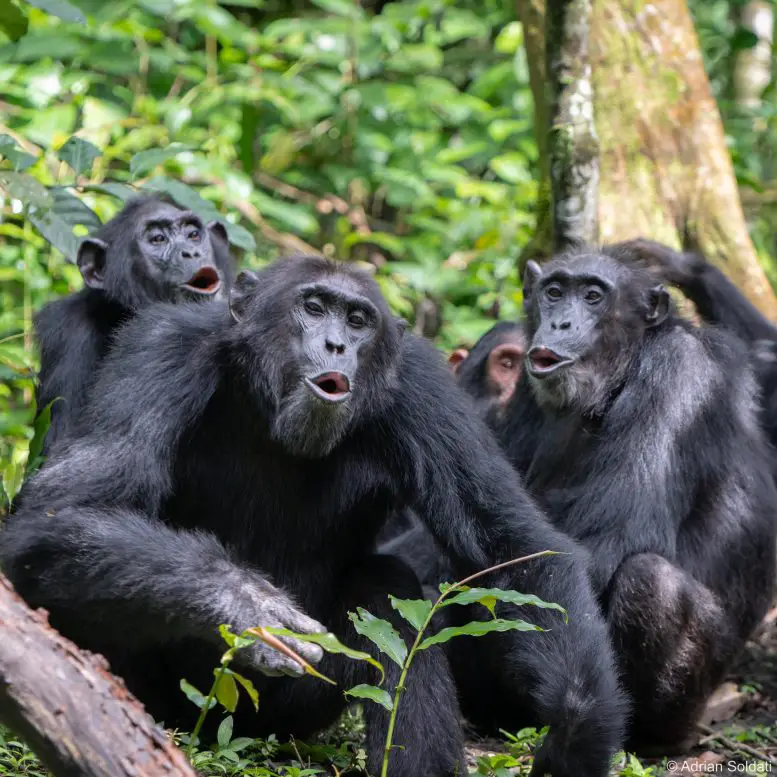Sick chimpanzees consume tree bark, dead wood, and ferns, which are known for their antibiotic and anti-inflammatory properties. According to a study published June 20 in the journal Open Access PLOS ONEChimpanzees can consume plants with medicinal properties to solve health problems. A study by Elodie Freimann and her team at the University of Oxford in England investigates this behavior.
Many plants produce compounds that have medicinal effects on humans and other animals. Wild chimpanzees eat a variety of plant matter, including some that are of poor nutritional quality but can treat or reduce disease symptoms. However, it is difficult to determine whether chimpanzees are self-medicating, deliberately seeking out plants with properties that will help with their specific ailments, or passively consuming medicinal plants.
The authors of this study combined observations of the behavior of wild chimpanzees (pantroglodytes) through pharmacological testing of the potential medicinal plants they eat. They monitored the behavior and health of 51 chimpanzees from two communities living in the Budongo Central Forest Reserve in Uganda. They then collected plant extracts from 13 tree and plant species in the reserve that they suspected the chimpanzees could use to self-medicate and tested them for their anti-inflammatory and antibiotic properties. These included plants that sick or injured chimpanzees had been observed eating but were not part of their normal diet, as well as plants that previous research had suggested chimpanzees might consume for their medicinal properties.
Medicinal properties of plants and behavior of chimpanzees
Researchers found that 88% of plant extracts inhibited bacterial growth and 33% had anti-inflammatory properties. Dead wood from the dog family (Alstonia boonei) showed the strongest antibacterial effect and also had anti-inflammatory properties, indicating that it could be used to treat wounds. East African mahogany bark and resin (Khaya anthotheca) and fern leaves (Christella parasitica) has a strong anti-inflammatory effect. Researchers observed a male chimpanzee with an injured arm foraging for and eating fern leaves; this may have helped reduce pain and swelling. They also recorded an individual with a parasitic infection who consumed the bark of the cat’s thorn tree (Scutia myrtina).
The results show that chimpanzees seek out certain plants for their medicinal effects. The study is one of the first to provide both behavioral and pharmacological evidence for the medicinal benefits of feeding tree bark and dead wood to wild chimpanzees. Medicinal plants grown in the Budongo Central Forest Reserve may also be useful in the development of new drugs to combat antibiotic-resistant bacteria and chronic inflammatory diseases, the authors say.
“In this paper, we show how observing and learning from our primate cousins can accelerate the discovery of new medicines and highlight the importance of protecting our forest pharmacies,” the authors add.
Source: Port Altele
